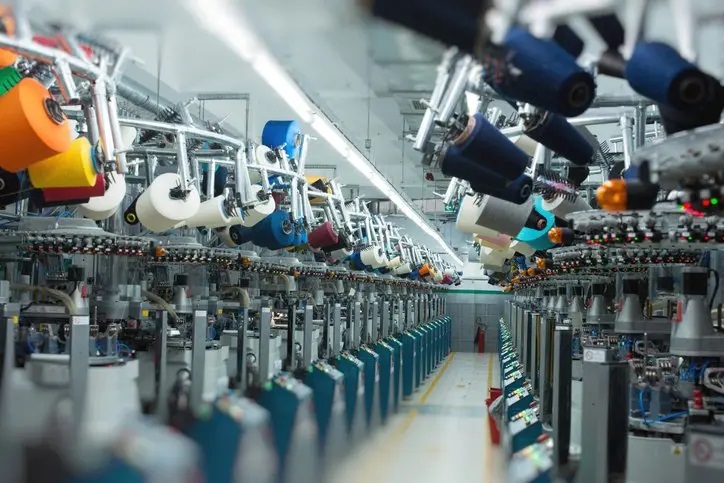Where Passion Meets Opportunity
At the Department of Textile Engineering and Fashion Design, World University of Bangladesh, we believe that true innovation begins where passion meets opportunity. Our programs are designed to ignite curiosity, nurture talent, and transform aspiring minds into future leaders of the textile industry.

About Textile Engineering
With state-of-the-art laboratories, experienced faculty, and a curriculum aligned with industry demands, we provide students with the technical expertise and practical skills needed to thrive in a dynamic global market. From sustainable textile production to smart fabric technology, our department is at the forefront of emerging trends.
We foster an environment where creativity and research go hand in hand, empowering students to not only adapt to change but also drive it. Whether you're passionate about fashion, materials science, or industrial innovation, WUB offers the platform to turn your passion into a profession.
Vision and Mission
Building Leaders for the Global Textile & Apparel Industry
Our Vision
The vision of the Department of Textile Engineering and Fashion Design is to produce leaders in the textile and apparel sector, characterized by academic excellence, research, and innovative ideas that contribute to the economic emancipation of our beloved country.
Our Mission
The mission of the Department is to develop human resources to meet the needs of modern society within the highly complex and global apparel world. To achieve this, we aim to produce quality graduates imbued with ethical values and equipped with knowledge and skills suited to the fast-changing industry.
Why Choose DTE at WUB?
The Department of Textile Engineering and Fashion Design at the World University of Bangladesh (WUB) offers a unique blend of academic excellence, industry relevance, and hands-on experience.
Industry-Aligned Curriculum
Our programs are designed in consultation with textile professionals and leading industry partners to ensure students gain the most relevant and up-to-date knowledge in spinning, weaving, dyeing, finishing, garment construction, and fashion design.
Experienced Faculty
Learn from passionate educators and industry experts who bring real-world experience into the classroom, bridging theory with practical application in both engineering and creative domains.
Modern Laboratories & Facilities
We provide access to advanced labs equipped for spinning, weaving, dyeing, finishing, testing, CAD design, pattern making, and garment construction — giving students the tools to innovate and experiment.
Strong Industry Linkages
We maintain active collaborations with leading textile manufacturers and brands, providing internship opportunities, industrial visits, factory tours, and direct career placements in top Bangladeshi and international firms.
Focus on Research & Innovation
DTE at WUB promotes student-led research in sustainable textiles, technical textiles, smart fabrics, eco-dyeing, and circular fashion, preparing graduates for both industry roles and higher studies abroad.
Career-Focused Education
With a strong emphasis on skill development, entrepreneurship, and professional growth, our graduates are well-prepared to take on roles in production, R&D, quality control, merchandising, fashion design, and supply chain management.
Supportive Learning Environment
Our inclusive and student-centered approach ensures personalized guidance, mentoring, and support throughout your academic journey — helping every student reach their full potential.
Laboratories & State-of-the-Art Facilities
Our cutting-edge infrastructure empowers students to translate theory into tangible innovation through hands-on, outcome-driven laboratory experiences.
Physics Lab
Understand the scientific method and demonstrate experimental and theoretical skills by conducting experiments.
Chemistry Lab
Differentiate different kinds of bulk molecules and preparation of day-to-day life usable polymer products.
Computer Lab
Develop skills in working with Windows operating system and productivity packages (Microsoft Word, Excel, PowerPoint).
Mechanical and Electrical Lab
Interpret experimental data and understand safety procedures for safe laboratory practice.
Yarn Engineering Lab
Recognize parts and working principles of blow room, carding, drawing, roving, and ring spinning machines; demonstrate safe operation and settings.
Textile Testing & Quality Control (TTQC) Lab
Measure fineness, length, maturity, moisture regain, tensile strength; interpret results for yarn/fabric performance.
Fabric Engineering (Knitting) Lab
Recognize parts of weft (flat/circular) and warp knitting machines; demonstrate safe handling and maintenance.
Fabric Engineering (Weaving) Lab
Recognize hand loom, tappet, dobby, jacquard looms; demonstrate safe operation and maintenance.
Wet Process Engineering Lab
Perform desizing, scouring, bleaching, mercerization; analyze impact on absorbency and dye uptake.
Apparel Engineering Lab
Recognize sewing, cutting, pressing, and finishing tools; demonstrate safe handling and maintenance.
Fashion Innovation Hub Lab
Transform design ideas into final garments through research, sketching, fabric selection, sample making, and final garment production.
Drawing Lab
Develop creative garment illustrations and improve design visualization skills.
Successful Alumni & Industry Partners
Our graduates are shaping the future of Bangladesh’s $40+ billion textile and apparel industry — and beyond.
Many are employed in top-tier factories, design houses, export houses, and R&D centers. Others are pursuing postgraduate degrees globally.
Alumni are currently studying or researching at universities in:
USA, UK, Germany, Italy, Turkey, South Korea, Australia, Canada, and China.
